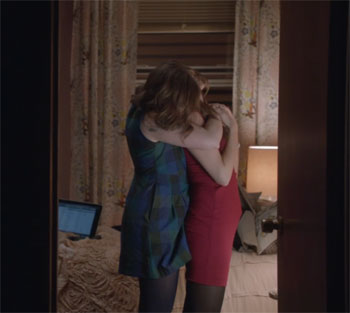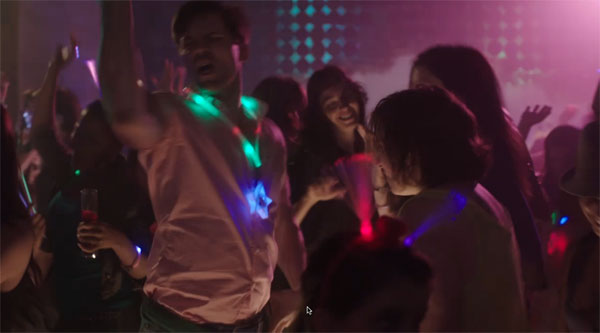Lena Dunham may not be the voice of her generation, but she certainly knows how to wrangle the musical delineations that make up for a generation’s lack of direction. While her hit HBO comedy-drama “Girls”—which she created, writes, directs and stars in—shows four female friends navigating the tumultuous and at-times embarrassing escapades of being in your early 20s, Dunham’s musical choices denote an unspoken voice that may not clearly define a generational divide amongst adults, but it speaks boldly of the maturity that lies within young people’s search for a perfect song, or at least a passing obsession.It’s Dunham’s and music supervisor Manish Raval’s uncanny ability to choose striking ditties that makes the music of “Girls” a sort of fifth character, charting the characters’ progress or lack thereof. The show’s tunes stylistically relay the messages of each episode, but not in an after school special way. Take note of the song that made for one of the more poignant scenes in the show’s first season, where best friends Hannah (Dunham) and Marnie (Allison Williams) get down in Hannah’s bedroom to Robyn’s “Dancing On My Own” after Hannah finds out her ex-boyfriend was gay the entire time they dated. The scene may simply sound like two white females bustin’ a move in a bedroom, but it’s more than that. People do this every day, but Dunham captures it so nakedly and honestly that writing it off as merely another artificial theme in a meaningless show would be a serious mistake.What also makes the music an interesting character in its own right is that it doesn’t merely rest on the mantra of ironic hipsterdom to overtake every single intriguing moment of the series. Don’t get me wrong, the soundtrack is pretty hipster-ific—alternative music blogs must swoon over the inclusion of Regina Spektor, Belle and Sebastian and Fleet Foxes—but Dunham also relies on the examination of her peers’ taste to choose music that’s not only aesthetically pleasing, but popular amongst the masses as well. Selecting Britney Spears “Till The World Ends” to play in the background at a warehouse party in Bushwick is a prime example of this inclusive method. Dunham also has a knack for turning the most audibly vulgar tracks into something great with their inclusion in a memorable scene. For instance, when I first heard the track “I Love It” by Icona Pop, I didn’t care for it. It just wasn’t my bag. However, after watching the sequence where Hannah and Elijah (the aforementioned gay ex-boyfriend) are high on coke at a gay club dancing to said track, it completely makes the scene, and I couldn’t get the song out of my head for weeks. As a fan of cinema and TV viewing alike, there’s one thing that can make or break a particular moment on the silver screen: the closing song. I have a mild obsession with closing songs that probably started with Noah Baumbach’s inclusion of Lou Reed’s “Street Hassle” in the final scene of The Squid and the Whale. One excellent example of Dunham’s closing song expertise includes The Echo Friendly’s “Same Mistakes” at the end of season one, episode four when Marnie throws a drink on Hannah while calling her a “fucking bitch”—to which Jessa (Jemima Kirke) responds, “That was awesome!” Right before the scene cuts and the song plays, Hannah moans, “I think I’m gonna throw up.”Another good example is from season two, when Ray—who’s normally the pragmatic, comedic male presence of the show—has a meltdown, and Tegan and Sara’s touching cover of The Rolling Stones’ “Fool to Cry” plays as he looks out on the New York skyline. It’s such a heartfelt scene that shows the vulnerable side of a character who has a specific moral center, yet rarely has moments of emotional fatigue. Kudos, Dunham and Raval.After reading this, you may ask why the music of a buzz-worthy HBO show is relevant to music journalism. To this, I respond that it’s relevant because music projects a story in and of itself, and it’s this story that we—as music journalists and listeners—find most fascinating. “Girls” may be a catalyst for reflection among 20-somethings, but the music is the propellor that drives the show’s main points home. Whether offhandedly quoting Missy Elliott to accuse a black lover of fetishizing her whiteness—“Why don’t you lay this thing down, flip it and reverse it. …”—or being whisked down the street on a guy’s shoulders to The Vaccines’ “Wreckin’ Bar (Ra Ra Ra),” Dunham explores relatable moments and expertly soundtracks these moments. Half the fun of enjoying these points in time is the fact that we can perceive these songs as a significant indicator of the complete and utter joy of living.













